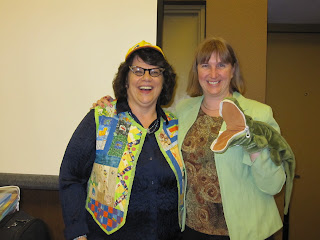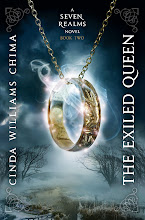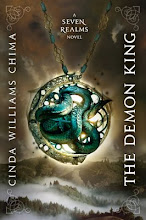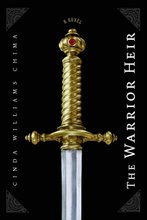 | |
| Dining Hall, Christ Church College, Oxford |
I come from people who don’t travel overseas except in uniform. Or in chains. My ancestors came here a long time ago—mostly from England, Scotland, and Ireland—likely in chains. Once here, they pretty much stayed put. And it never occurred to me that I would be among the first to break through the family inertia.
 | |
| Susie in Oxford Garden |
I worked my way through college in a minimum wage office job. In those days, a person could pay for college that way if she lived at home and went to dollar movie nights at the university. Me, I was paying my tuition and also saving up money to get my teeth straightened, something my parents couldn’t afford.
And then my friend Susie suggested that I go with her to Europe.
She had signed up for an English literature tour through the university, and also planned to travel the Continent on the cheap, with a Eurail pass and a series of $5 and $10 a night hotels.
Cheap was still extravagant to me. But I did it anyway. I took that orthodontics money and squandered it on a trip to Europe.
It was the best decision I ever made. It changed my life.
 | |
| Ralph Sykes and Bus |
In England, we traveled in a little bus that could get to those narrow places that history happens. Ralph Sykes Davis was our bus driver and guide to real life. Arthur Kincaid, a doctoral candidate at Christ Church College, was our mentor in all things literary.
 | |
| Arthur Kincaid |
For two weeks, we traveled throughout England. We saw Diana Rigg as Lady Macbeth at the Old Vic in London. We toured Westminster Abbey and paid our respects to the poets in their corner.
I got drunk for the first time. I recall staggering through the streets of Camden Town, heading back to the dorm at the University of London.
 | |
| On the Altar Stone, Stonehenge |
Leaving London behind, we visited Stratford On Avon, and toured Ann Hathaway’s cottage. We walked the lonely moors in Hardy Country and stood in Keats’s garden. At Canterbury Cathedral, we saw the spot where Thomas Becket was martyred. I still love a good murder story.
We visited Stonehenge, and I sat on the altar stone and dreamt of old gods and old rituals. We visited Christ Church College, Oxford. You know what the dining hall looks like if you’ve seen the Harry Potter movies.
 |
| Ann Hathaway's Cottage |
 | |
| Dungeon Ghyll Hotel |
In the Lake District,we stayed in the Old Dungeon Ghyll Hotel, still a hangout for climbers. We visited Dove Cottage, Grasmere, Windermere—all the places immortalized by Wordsworth, Beatrix Potter, Coleridge, and others.
That was decades ago, but I am still mining those experiences. Scenes in The Warrior Heir take place at St. Margaret’s Church, near Westminster Abbey. The magical guilds were born in a fictional spot in the Lake District called Raven’s (Dragon’s) Ghyll—modeled after the Dungeon Ghyll and Raven’s Crag, a pike I climbed with Susie.
It’s a landscape that would turn anyone into a poet. It made me raise my eyes from the ground in front of my feet and see new possibilities. It’s taken a long time to get here, but the journey began in England.
Last week, I went back.




























